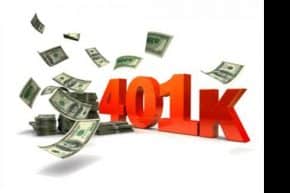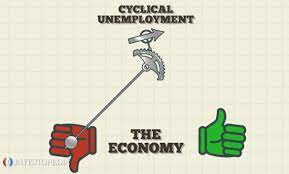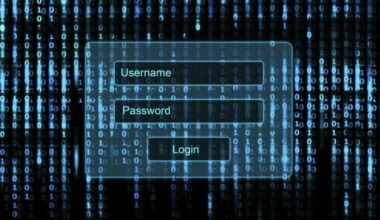There was once a time when a pension and social security benefits were well enough to cover expenses during retirement. But today, the tables have turned so much. Now, most people fund their own post-work years using various retirement plans that offer tax breaks and other benefits. One of these retirement plans is 401(k). For 401(k) retirement plans, people always look out for when to make the 401(k) withdrawals whilst avoiding penalty taxes. So we see all about 401(k) mandatory withdrawals, the penalty taxes, and how to avoid them. We are also going to look into the terms and conditions for Fidelity 401(k) withdrawals.
Generally, withdrawals from retirement plans are part of your taxable income. Unlike regular retirement plan contributions, qualified Roth distributions are tax-free because they are already taxed. However, if you take an early, non-required distribution, they may come with a tax penalty.
The Internal Revenue Service has certain rules for when you can and must take early qualified, or required distributions from a 401(k) retirement plan or an IRA. You can face tax penalties of 10% to 50% if you don’t understand and follow the 401(k) withdrawal rules.
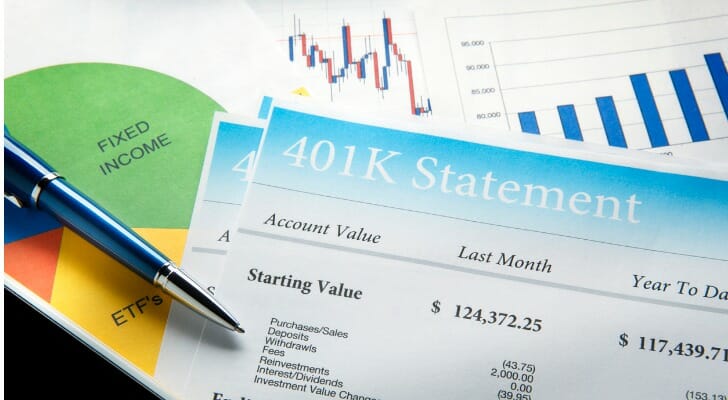
401 (k) Withdrawal Rules
Early withdrawals are those withdrawals you make from a 401(k) before age 59½. So they are taxed as ordinary income. However, they are subject to a 10% penalty tax. Meanwhile, there are some exemptions to the penalty. The exemptions include;
- Total and permanent disability.
- Loss of employment when you’re at least age 55.
- Distribution of the account pursuant to a qualified domestic relations order after a divorce.
401(k) distributions can also be used to pay for unreimbursed medical expenses. That is to say, if the expenses are more than 7.5% of your modified adjusted gross income (MAGI), or above 10% of your MAGI if you’re under age 65.
You will lose a good part of your savings to penalty taxes when you make an early 401 (k) withdrawal. Also, you’ll miss out on the potential future savings growth from the withdrawn amount.
Some 401(k) plans may allow for hardship withdrawals. Basically, hardship withdrawals often mean that you’re able to make money from your 401k before you reach age 59 ½. But most of the time the penalty still applies. However, they’re subject to approval by the employer. They must be made to meet an extraordinary, significant, and important financial need. Also, the amount you can withdraw can’t be more than the amount you need to meet that need.
Also, first-time home purchases or building a new house may be considered eligible for a “hardship withdrawal” from your 401k. Again, the 10% penalty will still likely apply here.
You have to keep in mind that these are broad outlines. Anyone wanting to make early withdrawals should talk to their financial advisor.
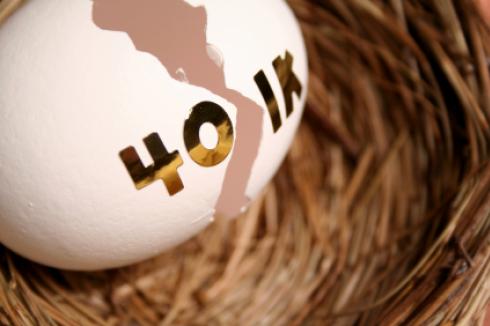
Coronavirus-related Early Withdrawals
The coronavirus has given us all some unique challenges, and many people have been feeling the financial impacts. Last year, the CARES act included several ways to offer support to retirement savers. RMDs were suspended for 2020, thus allowing individuals to defer taking distributions from retirement accounts if they so desired. For those who already took RMDs in 2020, they were able to refund those funds to their IRA or 401k and push any further distributions into 2021.
As stated earlier, there are also relaxed rules around early distributions and thus flexibility for loans from certain retirement plans.
However, the distributions may still be taxed as income. You will still need to repay yourself for the loan within three years.
401(k) Withdrawal from Under Age 55
Those under the age of 55, still working for the company that manages their 401(k) plan, have only two options.
- To take a 401(k) loan
- To take a hardship withdrawal.
When you stop working for the company, you can roll the funds over to an IRA or another employer’s 401(k) plan. You can only do so if their plan accepts these types of rollovers.
401(k) Withdrawal between Age 55–59 1/2
Most of the 401(k) plans allow for penalty-free withdrawals at age 55. To use this provision your employment must have terminated no earlier than the year in which you turn age 55. Also, you must leave your funds in the plan to access them penalty-free. However, there are a few exceptions to this rule. For most police officers, firefighters and EMTs, this provision makes funds accessible as early as age 50, instead of 55.
Before withdrawing from 401(k), be sure to go through the rules governing this age-55 liquidity provision:
- If you retire before getting to age 55, the retirement age 55 provision will not apply. Your withdrawal will be subject to a 10% 401 (k) early withdrawal penalty tax. For instance, if you retire at 52, thinking in two years you can access funds penalty-free. Nope, you can’t. You need to wait for two more years to retire for that provision to apply.
- When you roll your 401(k) plan over to an IRA, the retirement age 55 provision will not apply.
So, the earliest age at which you can withdraw funds from an IRA account without penalty taxes is age 59 1/2.
401(k) Withdrawal Age from 59 1/2 to 72
If you get to age 59 1/2, access to your funds depends on if you are still working or not.
401(k) for retired persons
If you are retired or terminated employment after getting to age 55, and still have funds in your plan, you can access them at age 59 1/2. They won’t charge you will not be charged for early withdrawal penalty tax. If you rolled your 401(k) funds to an IRA, the rules are the same. Age 59 1/2 is the earliest age you can withdraw funds from an IRA account with no early withdrawal penalty tax.
Still working
If you are still working, you can make a withdrawal of funds from an old 401(k) plan once you reach age 59 1/2. However, you may not have the same access to funds inside the 401(k) plan at the company for which you currently work.
So enquire from your 401(k) plan administrator to see if your plan allows what is called an “in-service” distribution at age 59 1/2. Some 401(k) plans allow this while others don’t.
Borrowing From a 401(k)
Taking a 401(k) loan can be a better option than an early distribution if your employer allows it. In this loan, there is no credit check and interest rates can be lower than with other types of loans]. You must pay yourself back with interest, and you must do so within five years. You must also do it immediately if you leave your job.
Also, taking a 401(k) loan can make you lose one of the main tax benefits of the plan. This is because you’re paying yourself back with after-tax money. You can miss out on your crucial months or years of investment returns. Another major disadvantage of a 401(k) loan is that you might have to pay back the loan within 90 days if you leave your job or are terminated. Your loan balance will be treated as taxable ordinary income if you don’t, and you might also be hit with that 10% early withdrawal penalty.
401 (k) Mandatory Withdrawals
You have to start withdrawing money from your traditional IRA account in the form of required minimum distributions (RMDs) when you are age 72. The amount of these withdrawals is based on a calculation involving your current age and the size of your retirement account. You can visit the IRS website for more details. If you don’t do this mandatory 401 (k) withdrawal IRS will fine you 50% of the amount you should have taken out.
The IRS uses life expectancy to determine how much you must take out each year to avoid the 50% 401 (k) penalty tax.
Your funds will remain intact as long as you’re still working, and the holders don’t have to take RMDs until the account owner dies.
The rules apply at different ages when it comes to your ability to access your 401(k) without penalties. The lesser your age, the fewer your option, especially if you’re not retired. This can be frustrating if you need the money for non-retirement expenses.
Can You Withdraw Money From a 401(k) Early?
Yes, if your boss lets it.
However, there are financial ramifications to doing so.
Except in the following circumstances, you will also be subject to a 10% tax penalty on the amount you withdraw:
- If it meets the IRS’s definition of a hardship withdrawal.
- If it meets the IRS’s definition of an exemption from the penalty.
- Also, if you require it for COVID-19-related expenses.
In any scenario, the person who makes the early withdrawal will incur regular income taxes on the money removed for the whole year. The whole balance of a typical IRA is taxed. If it’s a Roth IRA, any money withdrawn early that hasn’t already been taxed is subject to taxation. (Taxes are due on the profits earned by the account, not on the money you paid in, which has already been taxed.)
If the money does not fall under one of these exceptions, the taxpayer will be subject to an additional 10% penalty on the amount removed.
What Are the Penalty-Free Exceptions for an Early IRA Withdrawals?
The IRS allows penalty-free withdrawals for particular purposes, such as paying for college tuition or a down payment on a first home. These are referred to as “exceptions,” although they are also free from the penalty imposed on most early withdrawals.
It also allows for hardship withdrawals to be made in order to meet an immediate and pressing need.
There is presently one more hardship withdrawal option available, and it is for costs directly associated to the COVID-19 epidemic.
You’ll still have to pay regular income taxes on the money you remove, but you won’t have to pay the 10% early withdrawal penalty.
How Much Tax Do I Pay on a 401(k) Early Withdrawals?
The funds will be taxed as ordinary income. Depending on your overall taxable income, this could range from 10% to 37%.
In most situations, you will owe money for the tax year in which you receive the distribution.
Withdrawals for expenses linked to the coronavirus epidemic are exempt. In response to the coronavirus pandemic, account holders have been given three years to pay the taxes they owe on COVID-19-related disbursements.
What Are the Advantages and Disadvantages of Withdrawal vs. 401(k) Loan?
A withdrawal depletes your retirement savings indefinitely. By withdrawing funds too early, you will miss out on the long-term gain that a bigger quantity of money in your 401(k) would have provided.
Though you will not be required to repay the funds, you will be required to pay the income taxes owed, as well as a 10% penalty, if the funds do not fit the IRS criteria for a hardship or an exception.
A loan against your 401(k) must be repaid. If you pay it back on time, you won’t lose much of the long-term growth in your retirement account.
When can I make a 401(k) withdrawal?
401(k) withdrawals can typically be made once you reach 59.5 years of age, without incurring any penalties. However, some plans may allow for withdrawals before this age, such as in cases of financial hardship or certain life events, such as a disability or death.
When do I need to start taking RMD from my 401(k)?
You are required to start taking Required Minimum Distributions (RMD) from your 401(k) plan by April 1 of the year following the year in which you reach age 72 (70.5 if you reach 70.5 before January 1, 2020). RMDs must be taken annually thereafter.
What happens if I don’t take my required minimum distribution?
If you fail to take your Required Minimum Distribution (RMD), you may face a 50% excise tax on the amount that was required to be distributed but was not. This tax can be a significant financial burden, so it’s important to make sure you take your RMD on time each year.
How do I make a withdrawal from my 401(k) after I retire?
To make a withdrawal from your 401(k) after you retire, you will need to contact your plan administrator and fill out the appropriate forms. You may be able to withdraw the funds directly or roll them over into an individual retirement account (IRA). The process and rules for withdrawals may vary based on the specific terms of your 401(k) plan.
Can I withdraw money from my 401(k) if I have a financial hardship?
Some 401(k) plans may allow for withdrawals in cases of financial hardship, such as to pay for certain medical expenses or to avoid eviction from your primary residence. However, these withdrawals are typically subject to penalties and taxes, and may impact your future retirement savings. It’s important to carefully consider the long-term effects of a hardship withdrawal before making a decision.
Can I use my 401(k) funds to pay for my child’s education expenses?
In most cases, using your 401(k) funds to pay for your child’s education expenses is not allowed and would result in penalties and taxes. However, some plans may allow for loans from the 401(k) account for certain expenses, including education expenses, but this will depend on the specific terms of your plan. It’s important to understand the rules and consequences of taking a loan from your 401(k) before doing so.
Conclusion
There are a number of ways you can withdraw from your 401k without a penalty. However, we advise that you don’t touch your retirement savings until you are retired. Allowing these savings to build-up is a huge help when it comes to maximizing your retirement savings. This will extend the life of your portfolio. You will lose out on that when you take early withdrawals. To see how much compounding can affect your 401k account balance, check out our article on the average 401k withdrawal by age.
However, there are always possible for unforeseen circumstances to arise before you reach retirement. Being aware of the exceptions and rules allows you to make informed decisions. Also, note when you have to make your 401 (k) mandatory withdrawals. It will help you possibly avoid paying extra fees and taxes.
401 (k) Withdrawals FAQs
Can you still take money out of your 401k without penalty?
Individuals can withdraw up to $100,000 from a 401k or IRA account without penalty under the CARES Act. Early withdrawals are taxed at ordinary income tax rates since they are added to the participant’s taxable income.
What proof do I need for a 401k hardship withdrawal?
Documentation of the hardship application or request, including your evaluation and/or approval of the request. Financial information or evidence that substantiates the employee’s immediate and severe financial necessity. This could contain insurance invoices, escrow papers, burial fees, bank records, and so forth.
How much will I get if I cash out my 401k?
Traditional 401(k) (age 59.5+): You will get 100% of the balance, less state, and federal taxes. Roth 401(k) (age 59.5+): You will get 100% of your balance tax-free. If you cash out before the age of 59.5, you will be charged a 10% penalty on top of any taxes payable.
How much will I lose cashing out 401k?
If you withdraw money from your 401(k) plan before the age of 59 1/2, you must pay a 10% early withdrawal penalty in addition to income tax on the distribution. A $5,000 early 401(k) withdrawal will cost $1,700 in taxes and penalties for someone in the 24 percent tax bracket.
- Personal Finance: Basics, Importance, Types, Management ( + Free Software)
- What Are SHORT-TERM INVESTMENTS: Definition, Examples, and Banks
- Market Segmentation: All you need to know with Examples
- BAD CREDIT: Definitions, Examples & Penalties
- BABY BOOMER: Definition, History, and Retirement
- FBAR: The A-Z guide (+2021 Deadlines)
